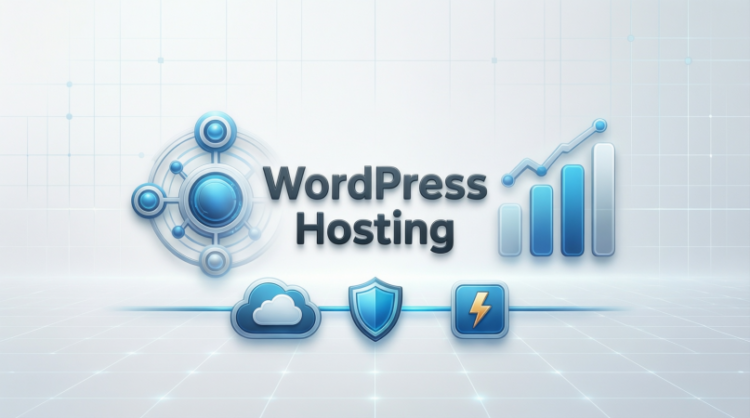
- Understanding the Importance of Building Long-Term Business Relationships
- Building Trust and Credibility with Clients
- Communication Strategies for Long-Term Relationship Building
- Providing Value and Consistent Delivery to Clients
- Managing and Resolving Conflicts in Business Relationships
- Leveraging Technology and Social Media for Relationship Building
- Building Relationships with Vendors and Suppliers
- Measuring and Evaluating Success in Long-Term Relationship Building
- FAQ
Strategies for Building Long-Term Business Relationships. Building long-term business relationships is an essential component of success in any industry. It is through these relationships that companies can cultivate trust, reliability, and mutual respect with their clients, vendors, and suppliers. Whether you are an entrepreneur, an established business owner, or a sales professional, it is crucial to understand the benefits of building long-term business relationships and the strategies that are required to achieve success. In this article, we will explore some of the key strategies for building long-term business relationships, including building trust and credibility, effective communication, delivering value, managing conflicts, leveraging technology, and measuring success.
Understanding the Importance of Building Long-Term Business Relationships
When it comes to being successful in business, building long-term relationships with your clients is crucial. In fact, it’s often more cost-effective to retain existing clients than to constantly be acquiring new ones. Building long-term business relationships offers various benefits, such as increased referrals, brand loyalty, and better communication.
Benefits of Long-Term Business Relationships
Firstly, long-term business relationships make it easier to get referrals from clients who trust and support your business. This reduces your marketing costs since referrals are more likely to convert into customers than cold leads. Additionally, long-term relationships foster brand loyalty and make it harder for competitors to lure your clients away. Better communication is also facilitated in the process, enabling you to understand and meet the clients’ evolving needs.
Challenges of Building Long-Term Business Relationships
Building long-term relationships poses its own set of challenges. For example, it’s easy for businesses to become complacent with existing clients, especially if they have been doing business for a long time. Furthermore, clients’ needs and expectations may change over time, and keeping up with these changes can be demanding. It’s important to remain proactive and dedicated to nurturing these long-term relationships for them to flourish.
Building Trust and Credibility with Clients
Building trust and credibility with your clients is what’s going to ensure that your long-term relationships last. Here are some effective strategies you can use:
Effective Communication and Active Listening
Being an active listener is vital to building trust with your clients. It’s important to show your clients that you understand their concerns and needs and that you’re actively working towards meeting those needs. You should also be transparent in your communication, ensuring that the clients know what to expect from you.
Consistent Delivery and Meeting Expectations
To build credibility, you have to deliver what you promise. Consistent delivery of high-quality products or services creates the impression that your business is reliable, and clients can trust you. You must also be willing to go the extra mile for your clients, even if it means working harder or longer than usual.
Transparency, Honesty, and Authenticity
Being transparent and honest with your clients is crucial to building trust. If you make a mistake, own up to it and work to rectify it. Authenticity and integrity in your dealings with clients will go a long way towards building a good reputation and long-term relationships.
Communication Strategies for Long-Term Relationship Building
Effective communication is a cornerstone of long-term relationship building. Here are some communication strategies that you can employ:
Clear and Concise Communication
Communicate with your clients clearly and concisely. Use language that is easily understood, and avoid using industry jargon or terms that the client may not be familiar with. This will help avoid misunderstandings and confusion.
Regular Check-ins and Follow-Ups
Regular check-ins with clients help keep you on top of their evolving needs and expectations. Additionally, it shows that you are invested in their success and are always available to offer support.
Customizing Communication to Meet Client Needs
Different clients have different communication preferences. To build long-term relationships, it’s vital to customize your communication strategy to meet the client’s specific needs. Some clients prefer emails, while others prefer phone calls or in-person meetings.
Providing Value and Consistent Delivery to Clients
Providing value and consistent delivery of high-quality products or services is what builds a strong foundation for long-term relationships. Here are some strategies to help you deliver value:
Understanding Client Needs and Goals
To provide value to your clients, you need to understand their long-term and short-term goals. Once you have a clear understanding of their goals, it’s easier to tailor your products or services to meet their needs.
Ongoing Learning and Development
As your clients’ needs change, you need to be ready to adapt. Investing in continual learning and development is what helps businesses remain relevant to their clients’ evolving needs.
Delivering High-Quality Services and Products
Consistent delivery of high-quality services or products is what keeps your clients coming back for more. Ensure that your services or products meet or exceed your clients’ expectations.
Managing and Resolving Conflicts in Business Relationships
Maintaining long-term business relationships involves managing conflicts effectively and efficiently. Conflicts and disagreements are a natural part of any business relationship, and how you address and resolve them can make a big difference in the longevity of the relationship. To maintain healthy business relationships, you need to learn how to resolve conflicts quickly and effectively.
Effective Conflict Resolution Techniques
Effective conflict resolution techniques include addressing the problem head-on, actively listening, being respectful, and working together to find a solution. It’s essential to avoid becoming emotional or being confrontational during conflicts. Instead, maintain an open mind and keep an optimistic attitude.
Addressing Issues and Concerns Promptly
When you detect a problem or concern in a business relationship, address it immediately. Delaying can cause the problem to escalate and become more difficult to address. Promptly addressing issues demonstrates that you value the relationship, and it shows that you are committed to resolving issues as soon as they arise.
Listening to Feedback and Making Changes
Feedback can be an essential tool in resolving issues in a business relationship. Listening to feedback from the other party can help you understand their perspective and work together to find a solution. Once a resolution has been reached, be willing to make changes if necessary to avoid similar conflicts in the future.
Leveraging Technology and Social Media for Relationship Building
Technology and social media have revolutionized the way we communicate with one another, and they can be great tools for building long-term business relationships. Using technology and social media for relationship building can help you communicate more efficiently and effectively with your clients and partners.
Using Technology to Enhance Communication
Technology, such as video conferencing and instant messaging, can help you maintain regular communication with your clients and partners. It’s essential to consider the preferences of your clients and partners and use the technology that they prefer to ensure effective communication.
Social Media Strategies for Relationship Building
Social media platforms are great tools for building relationships with your clients and partners. You can use social media to share relevant content, video updates, and news about your company. It’s essential to remember that social media is a two-way street, so be sure to interact with your clients and partners, respond to their comments, and engage with their posts.
Online Reputation Management
Online reputation management is an important element of long-term relationship building. It’s essential to ensure that your online presence reflects your values and aligns with your company’s brand. Monitor your online reputation regularly and address any negative comments or reviews promptly to ensure that your online presence remains positive.
Building Relationships with Vendors and Suppliers
Building relationships with vendors and suppliers is essential for any business that relies on them. Developing a strong relationship with your vendors and suppliers can help streamline your operations, reduce costs, and improve the quality of your products and services.
Establishing Trust and Mutual Respect
Trust and mutual respect are the foundation of any successful business relationship. To establish trust and mutual respect with your vendors and suppliers, communicate openly, be transparent, and demonstrate a commitment to the relationship.
Strategies for Effective Communication
Effective communication is essential for building relationships with vendors and suppliers. Keep them informed about your needs, expectations, and deadlines. It’s important to encourage open communication and create an environment where vendors and suppliers can provide feedback and suggestions.
Negotiating Contracts and Agreements
Negotiating contracts and agreements is an important part of building relationships with vendors and suppliers. Strong negotiation skills can help you find mutually beneficial solutions that meet both parties’ needs. Ensure that contracts and agreements are clear, specific, and mutually beneficial.
Measuring and Evaluating Success in Long-Term Relationship Building
To ensure that your long-term business relationships are successful, you need to measure and evaluate their effectiveness regularly. Measuring and evaluating your relationship-building efforts can help you identify areas for improvement and adapt your approach to better meet your clients’ and partners’ needs.
Key Performance Indicators for Relationship Building
Key performance indicators (KPIs) are measurable values that demonstrate how effective your relationship-building efforts are. Common KPIs for relationship building include customer satisfaction, customer retention, and referral rate.
Gathering and Analyzing Client Feedback
Gathering and analyzing feedback from your clients and partners is critical for building long-term relationships. Regularly collecting feedback can help you understand their needs and concerns, and identify new opportunities to improve the relationship.
Continuous Improvement and Adaptation
Continuous improvement and adaptation are essential for building and maintaining long-term business relationships. Analyze performance data regularly and adjust your strategies as necessary to better meet your clients’ and partners’ needs. Be adaptable and open to change to ensure that your relationships continue to grow and thrive over time.In conclusion, building long-term business relationships is a continuous process that requires effort, patience, and commitment. By focusing on establishing trust and credibility, providing value, effective communication, and leveraging technology, you can cultivate meaningful and productive relationships with your clients, vendors, and suppliers. It is important to remember that success in relationship building is not measured by short-term gains, but rather by the long-term partnerships that are formed. By following the strategies outlined in this article, you can position yourself for success and build strong, long-lasting business relationships that will benefit your company for years to come.
FAQ
Why is building long-term business relationships important for success?
Building long-term business relationships is important for success because it helps to establish trust, reliability, and mutual respect with clients, vendors, and suppliers. These relationships can lead to repeat business, referrals, and new opportunities for growth. By focusing on building long-term relationships, businesses can create a stable and sustainable foundation for success.
What are some challenges to building long-term business relationships?
Some challenges to building long-term business relationships include time constraints, lack of communication, cultural differences, and conflicts of interest. It can be difficult to balance the demands of maintaining existing relationships while seeking out new ones. Additionally, differences in communication styles or cultural norms can create misunderstandings that may strain the relationship. However, by being proactive in addressing these challenges, businesses can overcome them and build stronger relationships.
How do you measure success in relationship building?
Measuring success in relationship building can be challenging because the results are often seen over the long-term. However, some key performance indicators (KPIs) that can be used to measure success include customer retention rates, referral rates, and revenue growth from existing customers. Gathering client feedback and implementing changes based on that feedback is also an effective way to measure success and foster stronger relationships.
What is the role of social media in relationship building?
Social media can play an important role in relationship building by providing a platform for businesses to engage with clients, vendors, and suppliers on a regular basis. By sharing valuable content, responding to comments and messages, and showcasing expertise, businesses can build trust and credibility with their audience. Social media can also be used to manage online reputation and address any negative feedback or concerns in a timely and professional manner.
Read More :





